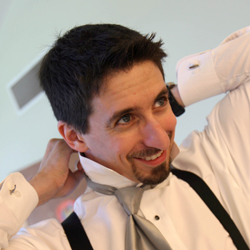Jacob Allard
I often hear many of my students and colleagues inquire about how they are supposed to tackle a specific problem within their writing. Each person is different in what stumps them: for some it’s characterization, with others it could be world building, and for a few it’s about authority. To each of them I will give an answer specific to their problem, but it doesn’t always click. When it doesn’t seem to help, I give them this one:
READ ESTABLISHED AUTHORS.
This may come as a seemingly obvious answer that won’t help at all, but you’d be surprised at how many people don’t realize how much this can actually help. I found this out the hard way.
I struggled for a long time with figuring out how to make a world different from ours seem real and enthrall my audience in a fictive dream. This troubled me so much that I made it my topic for my 3rd semester critical paper at Converse College during my MFA. In doing so it forced me to read much more critically and look at how the authors were able to do what they did, breaking everything I could down into its basic devices. I didn’t just read, I actually stopped at sections and reread them over and over again to see what it was that made their world seem so seamless. After a while I was able to pinpoint that (for myself) it was about details. But within those details I had to read over and over to see what led to each author’s authority. It took me a while, but I eventually figured out what I was looking for.
Now, I will sheepishly admit that while I loved reading, there were other things that distracted me before writing my critical paper and discovering how to read like a writer. Work, school, and admittedly the TV as well all stopped me from reading and reading closely. Now, I enjoy reading a good book and dissecting it; truly studying it, the way an artist studies the brush strokes on Dali’s canvas. For me, I had to specifically start by setting a clock to read every morning. I’d get up, brew a cup of coffee and read. Much like other writers need to set a clock to ensure that they keep writing or editing, I had to set a clock to read. Eventually I just started choosing the book over other media and have been thoroughly enjoying it. This helped me find the details that helped me solve my mysteries time and time again. Reading a lot is always helpful, but when I’m particularly stuck on a problem in my own writing I follow Newton’s advice in science and apply it to writing: I turn to the giants that came before me and have them help me see what I am doing wrong by what they’re doing right.
So the next time you’re editing your latest manuscript and keep hitting snags, before you give up, ask yourself: “What would my favorite author do?” If you can’t answer the question, start by going back to what hopefully triggered your writing bug: a book.
 Jacob Allard is the Nonfiction Editor at South 85. He graduated Converse College with his MFA in creative writing in 2014. When he’s not writing or editing he is usually found teaching, improvising, acting, or enjoying the outdoors or the City of Richmond, where he calls home.
Jacob Allard is the Nonfiction Editor at South 85. He graduated Converse College with his MFA in creative writing in 2014. When he’s not writing or editing he is usually found teaching, improvising, acting, or enjoying the outdoors or the City of Richmond, where he calls home.